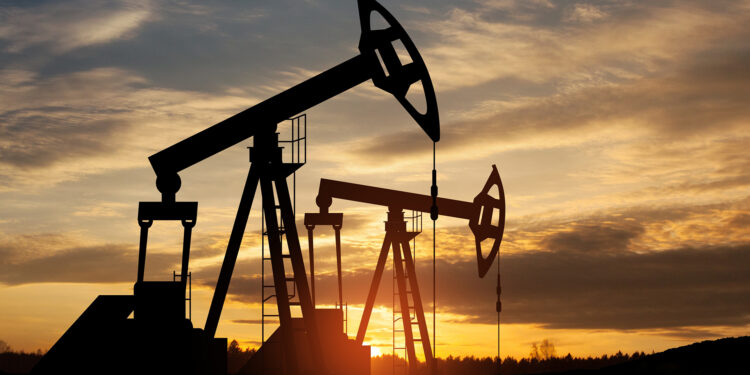Oil prices fell for the third consecutive day, affected by a mixture of negative factors, most notably the decision of the OPEC Plus to increase production starting in April, in addition to the escalation of commercial tensions after President Donald Trump imposed new customs duties on imports from China, Canada and Mexico, according to Reuters.
Increasing pressure
By 11:49 GMT, Brent crude futures decreased by $ 1.02 or 1.44% to $ 70.02 a barrel, while US West Texas Intermediate crude fell $ 1.33 or 1.95% to $ 66.93 a barrel.
This decrease comes after the two crudes recorded their lowest levels in several months in the Tuesday session, amid the escalation of concerns about the decline in global economic growth and poor fuel demand, as a result of US customs duties and the reprisals of the affected countries, according to Reuters.
“The United States imposed customs duties on China, Canada and Mexico, rapid reactions from each country, which increased concerns about slowing economic growth and the resulting energy demand.”
OPEC Plus raises production
On Monday, the OPEC Plus Group, which includes the Organization of Petroleum Exporting Countries (OPEC), Russia and other allies, decided on Monday to increase production for the first time since 2022. According to Bloomberg data, the increase will start with 138 thousand barrels per day starting in April as part of a gradual plan to cancel production cuts of 6 million barrels per day, which represents 6% of global demand.
“There is some anxiety in the market that OPEC Plus is the beginning of a series of monthly increases in supplies, but OPEC Plus’s statement confirms that the additional pumping will only take place if the market is able to absorb it,” said Giovanni Stonovo, an analyst at UBS.
According to analysts in Morgan Stanley, OPEC Plus may decide to implement limited production increases, instead of completely canceling discounts at once.
American customs duties increase pressure
The new American customs duties entered into force on Tuesday, when the Trump administration imposed:
- 25 %on all imports from Mexico
- 10 %on power imports from Canada
- Raising customs duties on Chinese goods to 20%
- 25 %on all other Canadian imports
China and Canada have responded with immediate anti -actions, while Mexico announced that it is studying a similar response, according to Mexico President Claudia Shinbom.
The Middle East is afraid of the surplus
According to a report published by Bloomberg Agency, oil prices in the Middle East were dropped due to OPEC Plus plans to increase production, as the price of Oman’s ore on the Gulf Energy Stock Exchange fell below Brent crude for the first time since late 2024. This led to the end of the longest period when Omani crude was higher than the global standard since 2023.
The report indicated that OPEC Plus’s decision to increase production may add more than 2 million barrels per day to the long term, which enhances fears of the exhibit. Speculation also contributed to a potential reduction in US sanctions on Russian oil in exacerbating investors.
“The recent movements in the market completely closed the window of oil shipping opportunities from Europe and the United States to Asia, indicating the possibilities of a continuous displayed surplus,” said Nile Krossby, an analyst at Sparta Communists.
American oil supplies are under threat
In addition to these developments, the Trump administration said on Tuesday that it had canceled the license it granted to Chevron to work in Venezuela since 2022, threatening the supplies of 200 thousand barrels per day from the Venezuelan market, according to ING estimates.
Meanwhile, the figures of the American Petroleum Institute revealed that US crude oil stocks decreased by 1.46 million barrels during the week ending February 28, which investors ahead before the official data was issued later today.
All of these factors indicate that oil prices will remain under pressure, with an increase in the global supply and the escalation of commercial tensions, which weakens the prospects for demand.
“It seems that the high oil prices that we witnessed after the sanctions on Russia and Iran have not last long, and now we see inverse pressure that negatively affects the market,” said analysts in Bloomberg.



